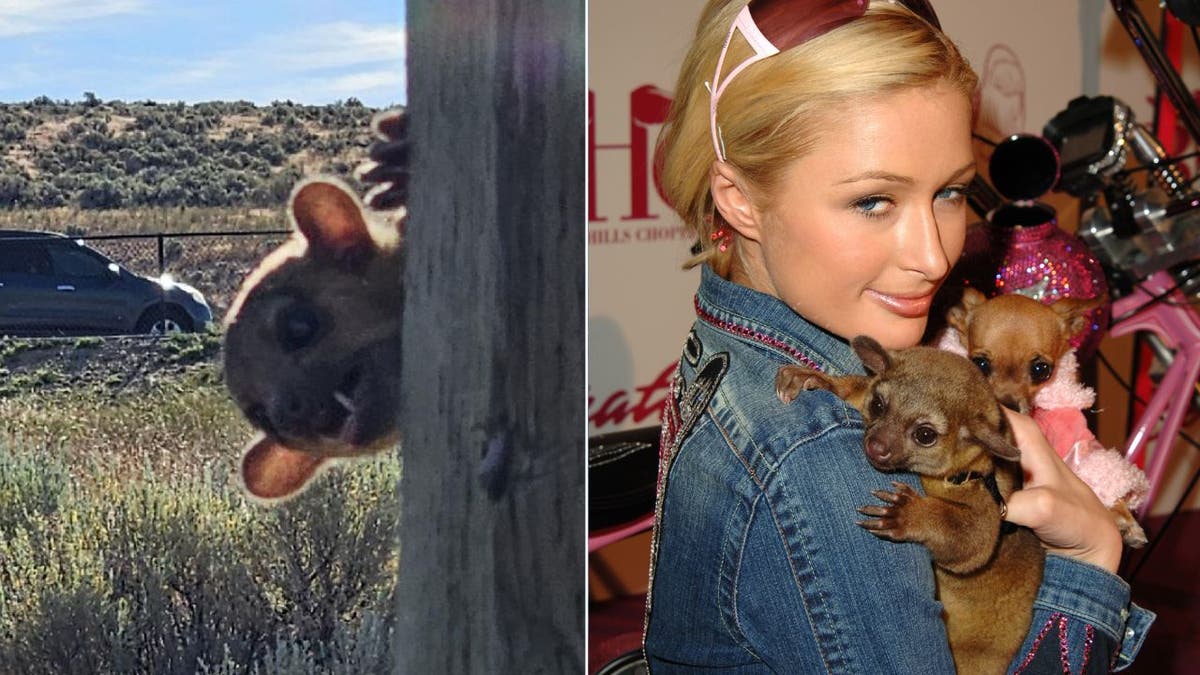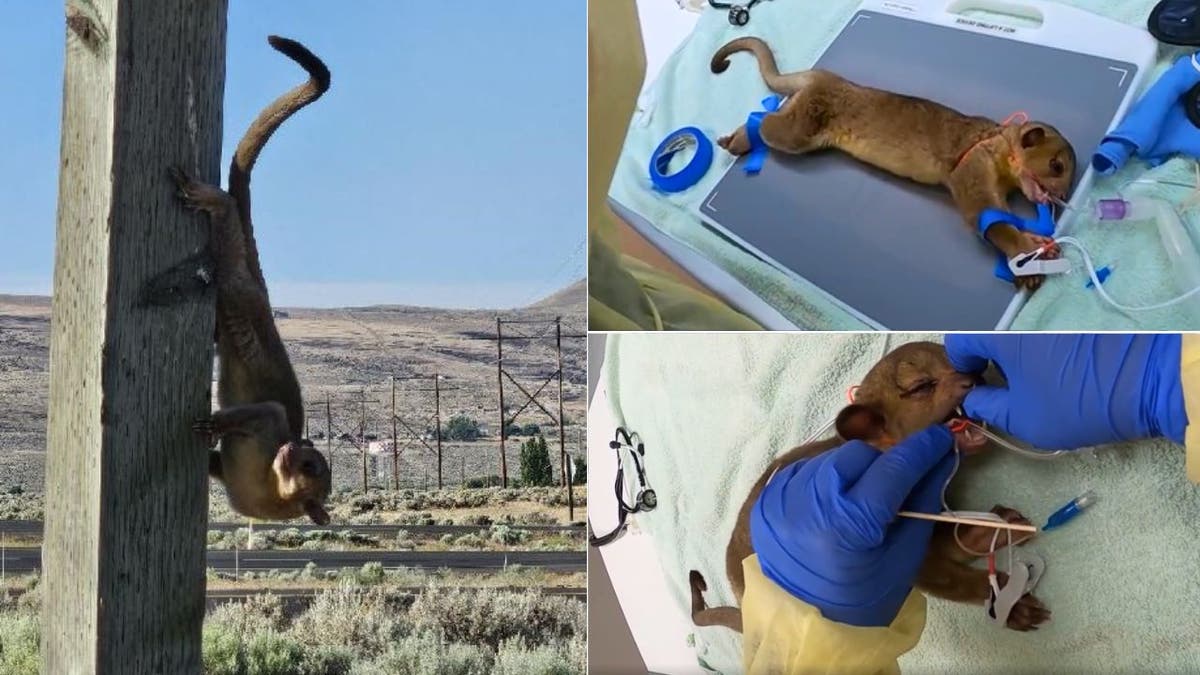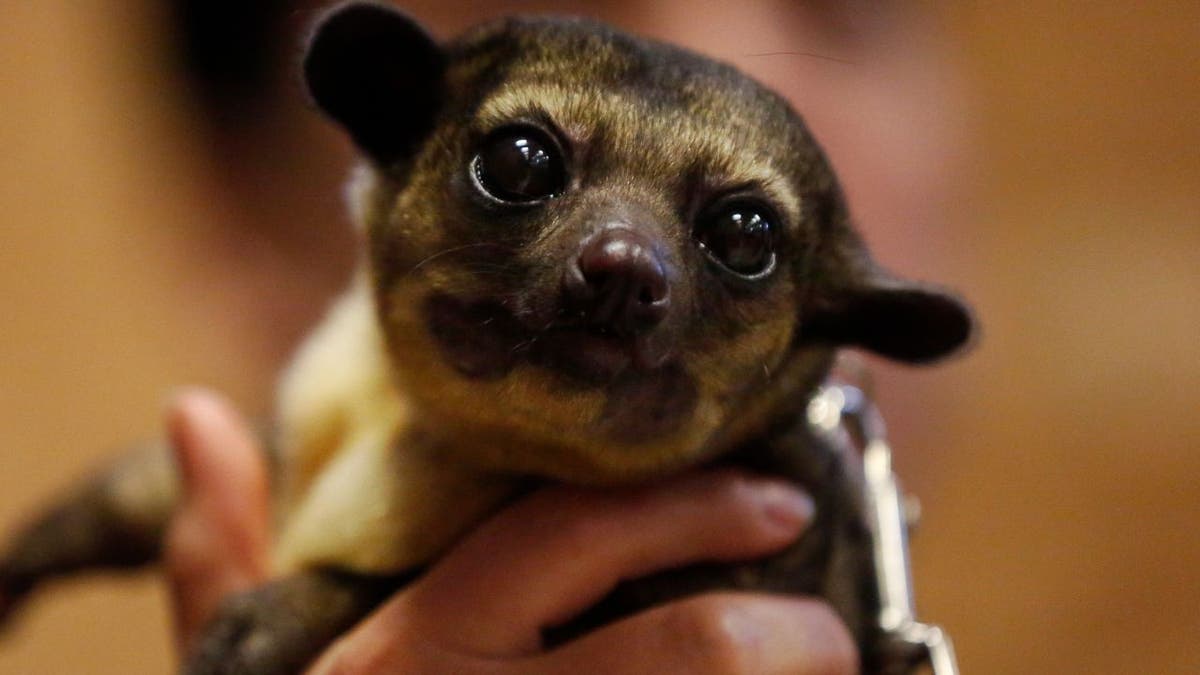A small raccoon-like mammal known as a “kinkajou” was rescued earlier this week after being found climbing a dusty Washington road pole. The nocturnal critters are indigenous to the rainforest and were once made popular as an exotic pet by Paris Hilton.
The rescued kinkajou was seen peeking around a wooden sign pole at a rest area in East Selah, Yakima County, according to a photo posted to X Monday by the Washington State Department of Transportation.
The agency says it wasn’t sure if the kinkajou, also known as a honey bear, was dropped off there or escaped, but it has since been brought to the Association of Zoos and Aquariums for a comprehensive wellness exam at its animal hospital.
KINKAJOU BARGES INTO FLORIDA WOMAN’S APARTMENT, ATTACKS HER BOYFRIEND, OFFICIALS SAY

A small raccoon-like mammal known as a kinkajou was rescued this week after being found climbing a dusty Washington state road pole. (Washington State Department of Transportation I SGranitz/WireImage )
“We are awaiting the results of diagnostic testing, including comprehensive blood work, to get a complete assessment of his health,” the zoo posted to Facebook along with a short video of the examination.
Head Veterinarian Dr. Karen said the young kinkajou is in fair health overall but is very thin, weighing only 2½ pounds. He has a good appetite, and staff is feeding him a full and healthy diet, the zoo said in the post.
“This young kinkajou’s survival is a testament to the collaborative efforts of state wildlife law enforcement and the Zoo, highlighting the dangers of the illegal pet trade,” the post added.
The zoo said that while kinkajous are not endangered, they are hunted for fur, meat and the exotic pet trade, which threatens their wild population. Its skin is often used to make wallets and horse saddles.
PARIS HILTON BITTEN BY PET KINKAJOU

A small tree-hugging “kinkajou” was rescued this week after being found climbing a dusty Washington road pole. (Washington State Department of Transportation I Point Defiance Zoo & Aquarium, right.)
Kinkajous live in tropical rainforests from southern Mexico through Brazil. They are small carnivores with prehensile tails, often mistakenly called primates, the zoo said.
The kinkajou has sandy yellow fur, a round head, large black eyes and a short, pointed snout as well as short limbs. Mature kinkajous can weigh up to about 10 pounds and stretch to 52 inches in length. They feed on fruits, roots, shoots, nuts and seeds.
“Despite their cuteness, kinkajous do not make good pets,” the zoo said, although that hasn’t stopped socialite Hilton from owning one.
The influencer and activist has been pictured in the past holding a kinkajou she called “Baby Luv.”
CLICK HERE FOR THE FOX NEWS APP

Kinkajou Harley is held by San Francisco Zoo Education Specialist Amy Goodwin during an event at the San Francisco Zoo & Gardens at the Willie Woo Woo Wong Chinese playground Feb. 17, 2016, in San Francisco. (Leah Millis/San Francisco Chronicle via Getty Images)
Baby Luv bit Hilton in the arm in 2006, prompting her to go to a hospital, where the wound was treated and given a tetanus shot.
The National Institutes of Health says kinkajou bites require the usual tetanus prophylaxis, rabies vaccine and wound cleaning. In most cases, antibiotics are prescribed to prevent the development of cellulitis or osteomyelitis.

Paris Hilton attends the 2023 LACMA Art+Film Gala at the Los Angeles County Museum of Art Nov. 4, 2023, in Los Angeles. (Emma McIntyre/Getty Images for LACMA)
The zoo said the kinkajou is recuperating at the zoo while officials look to find it a permanent home.






